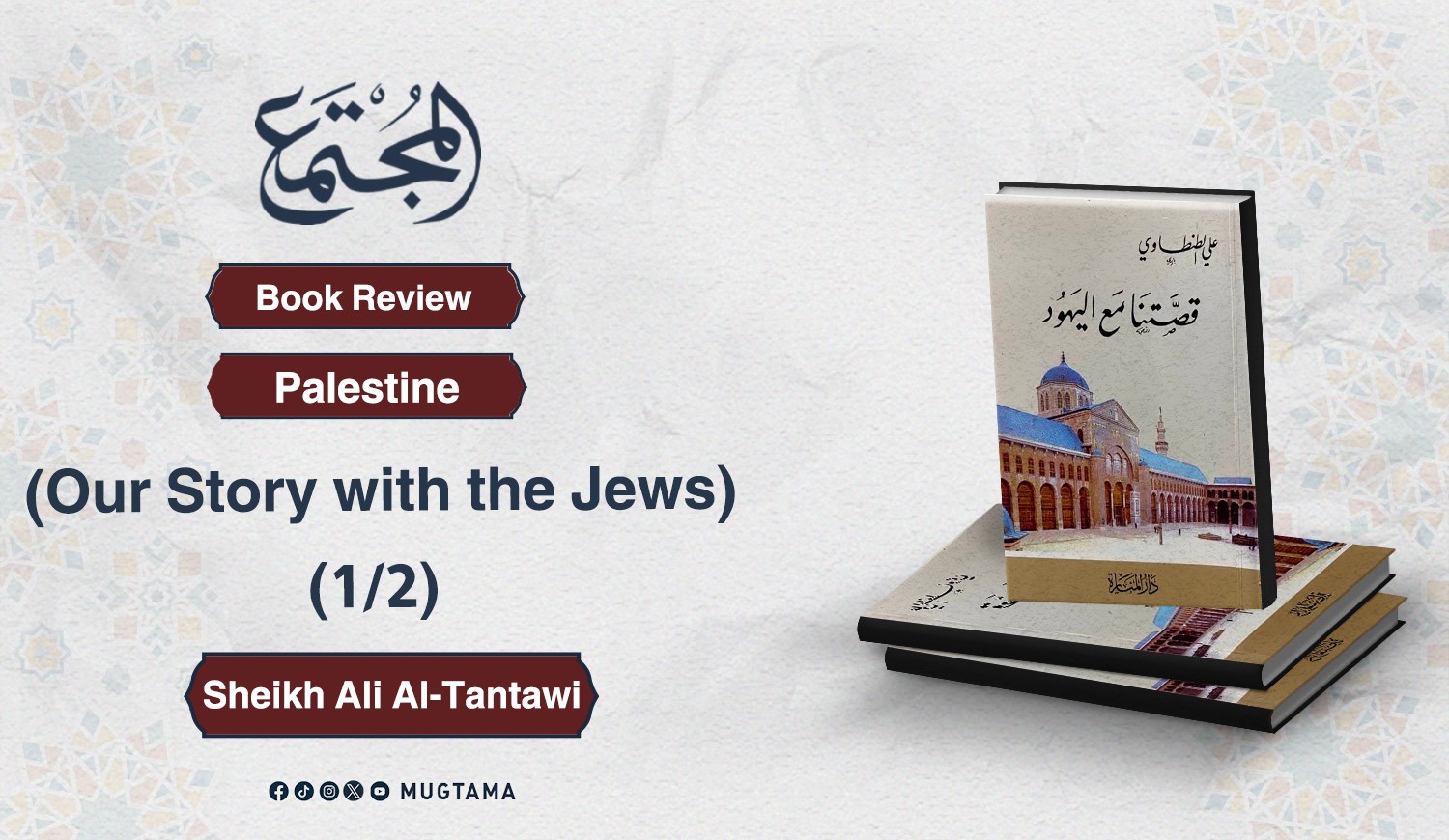Book Review (Our story with the Jews) (1/2)

The
book "Our Story with the Jews" is
an analytical-historical work that sheds light on the roots of
the problem with Jews and Zionism throughout history.
It discusses their relationship with Muslims and Arabs, and
the conflict that culminated in the establishment of the Israeli
occupation state.
Major Crises in Islamic History
The
author begins by describing the state of the Islamic nation when its
faith weakens, and its ranks become divided.
He
demonstrates that its enemies do not leave it alone, but rather plot
organized and studied schemes to exploit this weakness.
This
is a recurring law in history: when a nation collapses from within, other
nations eagerly pounce on it from the outside.
From Turmoil to Resolve: The Companions’ Test
The
author cites as an example what happened to the Muslims during the
first major calamity they faced after the death of the Prophet Muhammad, peace be upon him.
Al-Madinah was thrown into turmoil, and souls were agitated, to the extent
that some of the Companions could not believe
the news.
However,
Abu Bakr Al-Siddiq, may God be pleased with him,
confronted the situation with resolve and steadfastness when he uttered
his famous words:
"If anyone worshipped Muhammad, know that Muhammad has died. But
whoever worshipped God, know that God is Ever-Living and does not die."
Strength in Faith: Abu Bakr’s Decisive Response
The
matter did not stop at an emotional shock. Soon, serious political
and religious challenges emerged: a large portion of the Arabs apostatized
from Islam, and others sought to refuse the payment of Zakat, considering
it merely a right due to the Prophet (peace be upon him) that ended with his
death. It was then that Abu Bakr Al-Siddiq took a stand with decisiveness
and strength.
From Crusaders to Mongols: The Ummah Under Siege
After
presenting the first major calamity that befell the Muslims following the death
of the Prophet (peace be upon him), the author moves on to mention some of the
great catastrophes that successively struck the Ummah throughout its history.
The
Crusader armies mobilized from Constantinople all the way to the lands of the
Muslims. European hordes poured forth under the banner of a "Holy
War," until they managed to capture Jerusalem in 1099 CE. It remained in
their hands for nearly ninety years, during which they committed the most
atrocious massacres against its Muslim inhabitants.
Then,
an even greater catastrophe soon befell the Ummah with the Mongol invasion. They swept across the Islamic lands from east
to west, sacking Baghdad in 1258 CE. They demolished its great library, which
had been a beacon of science and knowledge, and threw its treasures into the
Tigris River—to the extent that it was said its waters turned black from the
ink of the books. The blood of Muslims flowed in rivers due to the intensity of
the slaughter and brutality.
The Birth of Israel: A Colonial-Zionist Conspiracy
The
author concludes this chapter by discussing the great catastrophe (Al-Nakba)
that crowned the series of ordeals inflicted upon the Ummah: the birth of the
Zionist entity in the heart of the Islamic world.
He
likens the establishment of Israel to an illegitimate child, born from an
invalid marriage between Western colonialism and the global Zionist movement. Ironically, the world's great
powers, despite their mutual hostility and fierce rivalry, rushed to recognize
this entity. The United States of America was the first to recognize it,
followed by Communist Russia—supposedly its bitter rival. Yet, they found
common ground in supporting Israel, driven by their shared recognition of its
importance in fragmenting and tearing apart the Islamic Ummah.
The Jews’ Claim of Being Persecuted
The Myth of Jewish Oppression and the Balfour Promise
The
author focuses on the propaganda promoted by Jews to justify their project: the
claim that they are an oppressed people who have suffered persecution,
especially what they attribute to Hitler—the massacres in Nazi camps. In the name of this alleged injustice, they gained
global sympathy, which translated into the Balfour Declaration. The author
describes this declaration as "a promise from those who do not own to
those who do not deserve," granting the land of Palestine to the Jews
without any right.
Peace” as a Mask for Occupation
The
author then explains how Jews used the slogan of "peace" to prettify
their seizure of the land. He illustrates this with an example: A thief breaks
into your home; if you resist him, he accuses you of being a terrorist who does
not understand the language of peace. For them, the meaning of peace is for you
to silence your rights and accept the legitimacy of their usurpation.
Thus,
the author reveals that the claim "Jews are an oppressed people" is merely a
pretext for establishing their entity at the expense of the Islamic Ummah, and
that peace, in their ideology, is nothing but a deception to legitimize the
occupation.
You may also like:










